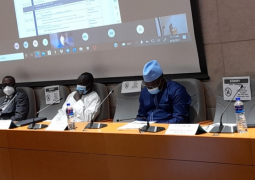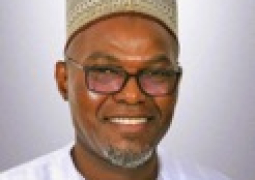
The Nafa Programme component of The Gambia Social Safety Net Project (a US$ 31 million project) is jointly funded by the World Bank and Government of The Gambia. The Nafa Programme is designed to promote continuity and harmonisation with other programmes, by expanding an existing package of cash transfers with SBCC managed by NaNA to new districts and regions.
The National Nutrition Agency (NaNA), Department of Social Welfare and Department of Community Development are implementing the Nafa Programme. The project is implemented in West Coast Region, Central River Region, North Bank Region and Upper River Region targeting 15,606 extreme poor households; this equates to approximately 40 percent of the extremely poor households in The Gambia. For a start it is being piloted in Foni Bintang, Nainija and Wuli West Districts.
The Project Development Objective (PDO) is to improve the coordination of social assistance activities, provide temporary social assistance support to rural households in the wake of COVID-19, and increase inclusion of the extremely poor in the Nafa Programme.
The selection was done using a Proxy-Means Test (PMT) and community validation in the poorest 20 districts of The Gambia. The regular revenue provided to such poor households is aimed at both increasing short-term consumption of essential goods and services, and enabling longer-term investments in human and productive capital.
Tailored SBCC will provide information to beneficiaries and non-beneficiaries to encourage investments that can bolster human capital especially maternal and child health and nutrition; education, adolescence and family planning; parenting and gender-based violence; and productive capital especially savings, entrepreneurship and agriculture to break the inter-generational cycle of poverty.
Saidou Jaw, a native of Sinchu Omar in Nainija District, Central River Region north, said prior to the start of the project he and his family had survival challenges.
“We used to eat two meals a day but after benefitting from the Nafa Programme we are now able to buy an extra bag of rice every month and eat three square meals every day. In addition I was able to buy small ruminant from the three cycles I received as well as buy laundry soaps for my wife, and give her extra fish money,” he explained.
Mr. Jaw and 2,770 other extremely poor households in the three piloted districts each receive D3000 every two months and he said his plan is to buy and rare more small ruminants and a cow when he receive other cycles to ensure he is able to sustain himself and his family when the project ends.
During the lean season in The Gambia, most households only eat two meals a day due to extreme poverty.
Kumba York, spouse of Mr Jaw, said prior to the project when their children eat before going to school they did not eat again until they returned home. However, she said after benefitting from the project their children are now able to eat before going to school as well as receive daily lunch money to buy something else when they go to school.
Ousman Dem, programme manager for Social and Behavioural Change Communication (SBCC) for the National Nutrition Agency (NaNA), said he was impressed with what he saw.
However, he said they did not only want to see a few beneficiaries but a greater number adopting to ideal behaviors in building their resilience and engaging in entrepreneurship and finance literacy but also improving their knowledge on nutrition, health, hygiene as well as prevention of Gender-Based Violence.





